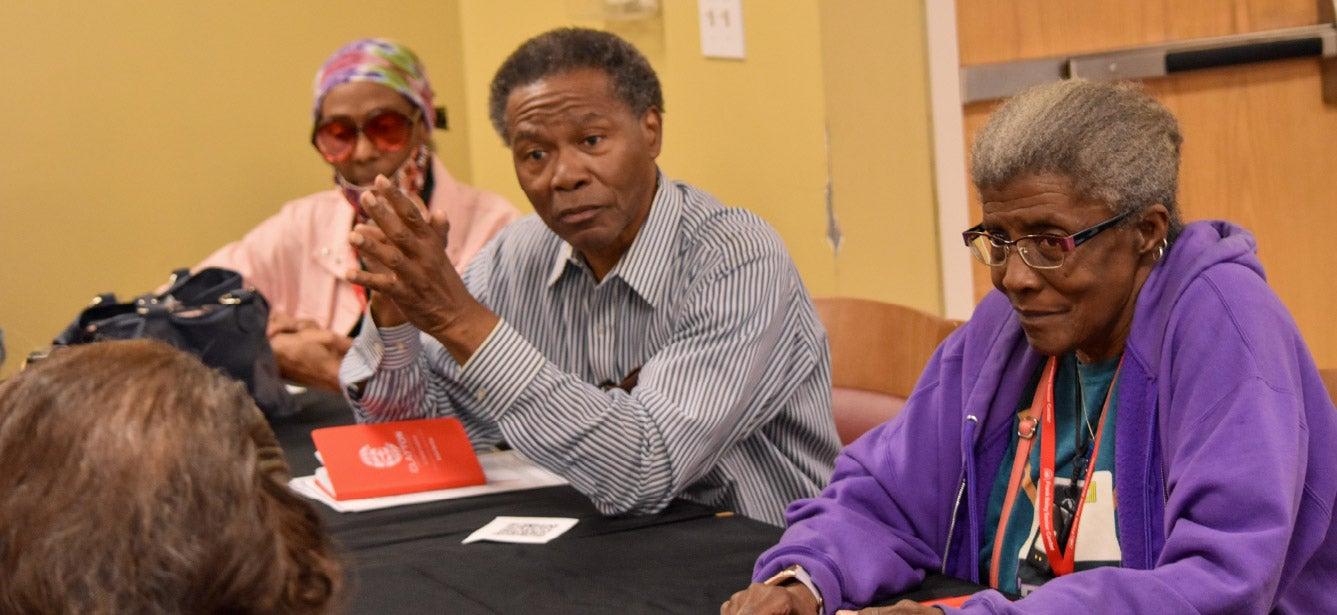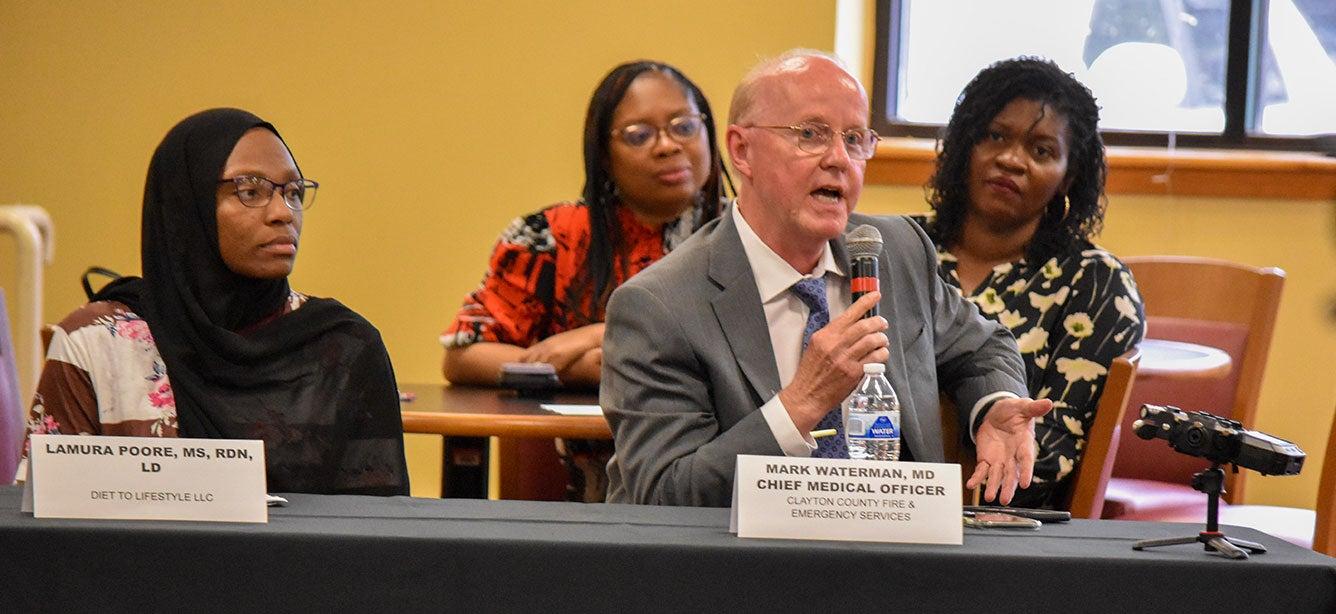
How is NCOA helping invest in senior center innovation while also supporting efforts to bring more leaders into the field of aging? A unique partnership with the American Society of Aging (ASA) brought four teams of ASA RISE fellows to senior centers in Atlanta, Chicago, Los Angeles, and Washington, D.C. The project’s goal: empower older adults to self-advocate around access to obesity care and treatment within their community, also engaging health care, community leaders, and policymakers.
Most of the fellows, who come from varied backgrounds within the field of aging, had worked in or visited a senior center before.
But they said this latest experience strengthened their knowledge of how senior centers are such trusted, safe spaces that can offer a range of services and support to local older adults.
They also noticed a need to better inform everyone, including older adults themselves, of the value of senior centers.
“The power that senior centers have in being a trusted and safe space for the community,” said ASA RISE fellow Linda Revilla, Acting Executive Director at Meals on Wheels ACC in Sacramento, California. “In this era of misinformation, I think that is something really valuable that senior centers can offer.”
What is the ASA RISE program?
The ASA RISE program “is a launching pad for the next generation of aging leadership,” according to ASA. “Our vision for ASA RISE is that it will lead to improved well-being across an increasingly diverse aging population" by helping to improve "policies and programs at the local, state and national levels.”
To drive that "systemic change in aging,” each 20-week cohort of fellows leads a national allyship project.
What did RISE fellows learn from working with a senior center?
One universal finding from the recent experience of going to a senior center with the goal of empowering self-advocacy around access to obesity care was that words truly matter. At each of the four senior centers, fellows found the term “obesity” did not resonate with senior center participants.
“The most important thing I’m taking away is to check my assumptions,” said Jocelyn Powell, who worked with West Suburban Senior Services outside Chicago and is a clinical team lead at the Alzheimer’s Association 24/7 helpline. “I think the world understanding about obesity and overall health and well-being is a different perspective when you look at individuals …Going in and having a certain expectation about what health and wellness looks like in a certain population, you might find yourself surprised.”
Her advice? Be flexible and adapt. And take your cues from the people you’re working with.
Indeed, the team working with the Frank Bailey Senior Center in Atlanta stopped using the term “obesity” and instead adopted the term “healthy lifestyle.”
"We learned very quickly not to use the word 'obesity,'" said Nadia Velasquez, one of the team of fellows meeting with the Willowbrook Senior Center in Los Angeles. As she and her team members pointed out in their case study, weight bias and stigma can be barriers to health.
Older adults in this community are more inclined to participate in treatments that are geared toward leading a healthy lifestyle or are wellness based as opposed to 'dieting or weight loss.'"
For RISE fellow Roosevelt Stripling, the experience with Vida Senior Centers in Washington, D.C., gave him perspective on how to move forward with a previous goal on his to-do list. As Mobility Support Services Program Manager for Metropolitan Atlanta Rapid Transit Authority (MARTA), he wanted to develop a partnership with senior centers to support their transportation needs. He now realizes his initial thoughts on how to set up the partnership weren't as involved or engaging as they need to be with both the senior center and participants.
“It has helped me to rethink my approach,” Stripling said about the months-long project with other ASA RISE fellows.
Some key lessons learned, according to the fellows:
- Get community partners to collaborate and connect with senior centers (because they all want to help).
- To yield greater results and drive home the fact that there is no “one-size-fits-all” approach, use open-ended questions.
- Liberatory design can be a useful tool not only when working with senior centers but with all those who support them, including social workers.
- Building trust is a key driver of success. Even the most well-known organizations need to re-establish that connection with senior center participants on a regular basis.
“There’s a unique need that I realized: to create buy-in” from senior center participants themselves, said Maurice Haskins, a licensed clinical social worker who was on the team working with West Suburban Senior Services in Illinois. That means making sure not only that their voices are heard, but that they’re included. “I think often well-meaning organizations want to do good for seniors. I learned it’s important to do good with seniors.”
What’s next for the RISE fellows?
As part of the project with the four senior centers, the teams of fellows designed toolkits that will be tested during a series of roundtable discussions, or “town halls,” with community members at those four senior centers. Data will be collected to measure engagement of older adults in self-advocacy, with the goal of using those findings to create a toolkit that can be used broadly across a wider swath of senior centers nationwide.
Senior centers will focus on how living with chronic disease can be a barrier to quality of life and see if the roundtable uncovers challenges with access to care, treatment, and management for overweight and related conditions. More importantly, the goal of the town halls will be to identify ways each community can effectively advocate for their own unique health needs.
Roundtables are scheduled for spring 2023. Meanwhile, all of the fellows said they hope to continue to educate and inform people about the value of senior centers.
“There’s this whole misconception of what senior centers are. A lot of people don’t participate in what senior centers offer,” said Christina Peoples, a gerontologist from High Point, North Carolina, who worked with the Atlanta senior center. “They do offer a lot to the community, and people should know about them.”
This project was supported by funding from Novo Nordisk.



